Blood test will speed bowel cancer detection say scientists
- Published
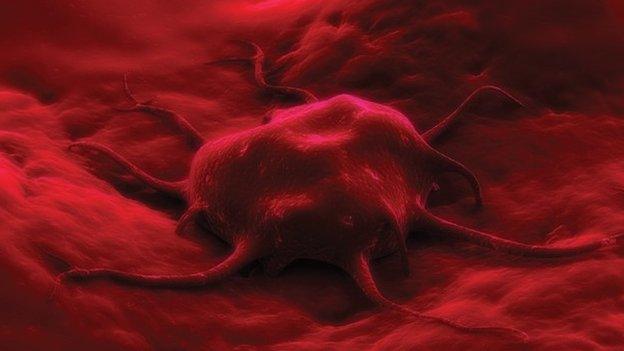
The new test can pick up antibodies in the blood
Scientists in Northern Ireland and the Irish Republic have developed a simple blood test that could detect bowel cancer at the earliest possible stage.
The £20 test picks up on antibodies in the blood and, according to researchers, is more sensitive and accurate than existing tests.
The research is being carried out by Randox Laboratories working with scientists at Dublin City University.
The new blood test should be available by the end of 2016.
Professor Richard O'Kennedy, scientific director at DCU's biomedical diagnostics institute said: "This new quick test will help in identifying patients with bowel cancer earlier, so they are sent for colonoscopy and thus treated more effectively.
"Survival rates from bowel cancer are closely associated with the stage at diagnosis. More than half of people with bowel cancer are diagnosed in the later stages, requiring more complex treatment, with a poorer chance of survival."
'Specific response'
Dr Julie-Ann O'Reilly, a senior scientist at DCU, said: "The results are clear. The blood test is more sensitive and it is more likely to pick up the people who have the cancer.
"It is more specific and less likely to inaccurately diagnose. The faecal test only detects blood which could arise from other issues. Our test measures the specific response to the presence of tumour cells."
Randox managing director Dr Peter Fitzgerald said: "If bowel cancer is found early, the growth is typically small and can be removed, leaving the person healthy and needing less treatment."
Dr Fitzgerald said the economic benefit to catching this cancer early would also be "considerable".
The Irish Cancer Society welcomed news of the blood test.
"We are very excited," said Dr Sinead Walsh.
"It will help us move another step forward in our strategy towards a future without cancer. The earlier bowel cancer can be detected, the better the outcome for patients."
Improving uptake of the bowel cancer test is a priority across the UK.
In England, statistics showed that fewer than half of those eligible were taking the test.
The tests, called faecal occult blood tests, are sent in the post to everyone aged between 60 and 74 years old, every two years.
They help detect polyps, which are non-cancerous growths which may develop into cancer over time.
Polyps can bleed and the test identifies tiny amounts of blood that normally cannot be seen.
- Published16 April 2014
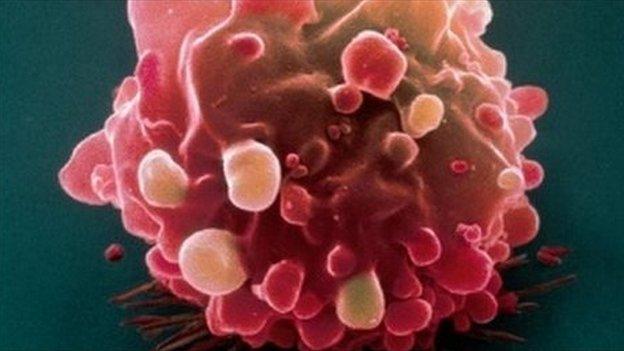
- Published3 February 2012
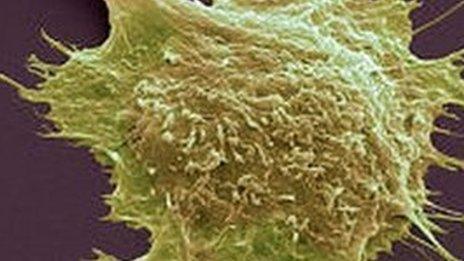
- Published8 December 2011
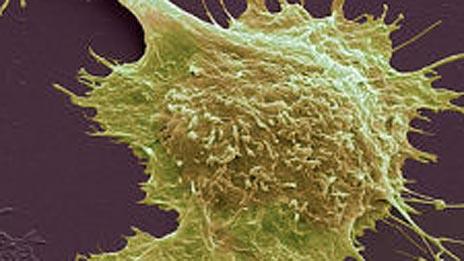
- Published12 September 2011

- Published23 August 2011

- Published5 March 2011
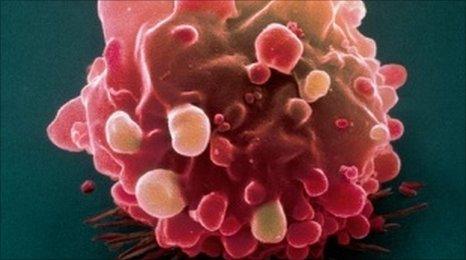
- Published1 February 2011